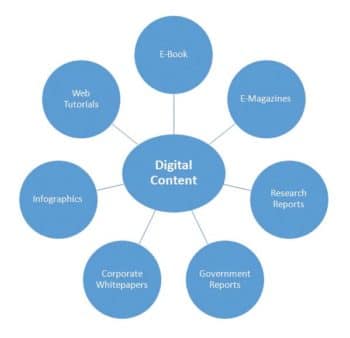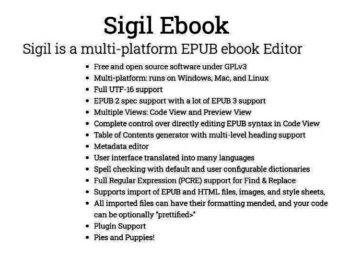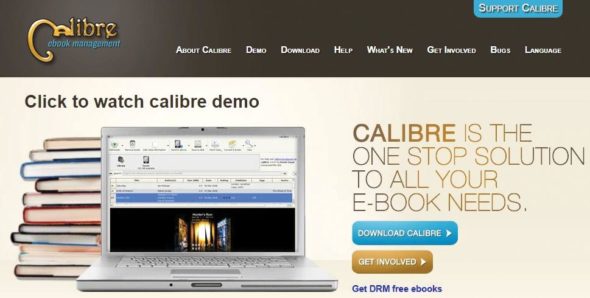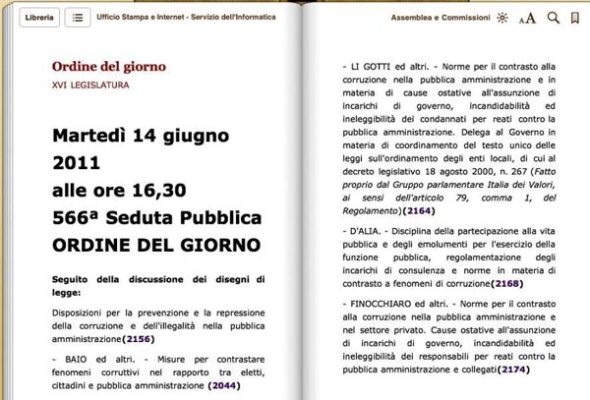All of us consume digital content every day in some form or the other, be it an e-zine, an e-newspaper or an online research report. This article lists a few open source software tools that aid the generation of such content.
Digital content is required for assorted applications such as authoring and publishing e-books, e-magazines, tutorials, e-notebooks, infographics, book reviews, research reports, corporate white papers, government reports, research, and so on.
Electronic publication also supports students by providing content and analytics when they prepare for their examinations, without the need for hard copies of different books. Students can now get content from international authors across the globe by accessing the Web and mobile applications of digital publishers. E-publication offers a broad variety of books that may not be accessible to readers through the regular bookstore due to the lack of demand for conventional printed copies. E-publishing allows independent writers to sell books that conventional publishers may be reluctant to take on due to low profitability. It is becoming more and more popular for children’s stories and enriching their knowledge in assorted domains.
Though electronic publication (also known as Internet publishing or website publishing) is nowadays very popular, various non-network electronic publications, such as CD and DVD encyclopaedias, and technological and reference publications are also being relied upon by smartphone users.
Amazon.com has a digital publishing division with its own website for self-published books under Kindle Direct Publishing. Developers can create and launch games and applications in Google Play Store without third party intervention. Musicians can record and upload their music to iTunes, which digitally publishes the music and makes it open to iPods, iPhones and other devices. The authors can use their delivery network, which is a type of digital publication, when you listen to Pandora, Spotify and all other music services online.
It often takes three to six months to plan and print magazines and catalogues. Digital copies can be obtained in a fraction of the time for everyone to view. When printing is finished, it is too late to add material, photographs or to fix errors. Quick, convenient and inexpensive updates are available for digital publications.

Digital catalogues allow users to click for more details or to place instant orders, unlike printed catalogues. E-catalogues can also allow customers to access feedback and evaluations or voice their views on a product. The impulse buyer is much more susceptible to Internet catalogues than to a paper edition.
Without giving up your own copy, multimedia catalogues can be exchanged with friends, families and social networks. Digital platforms and every form of media provide an overarching benefit relative to print materials – written material is hardly viral, but promotions that are initiated by digital technologies are, and include video messaging in particular.
With the increasing formats of digital content, there is need to work on effective and high performance tools so that freelance writers, authors and publication agencies can create content with greater focus.
The formats for creation of digital content and e-books include the following:
- Portable Document Format (PDF)
- HTML
- Comic book archives
- DjVu
- Plain text
- EPUB
- FictionBook XML format
- MOBI for Kindle e-books
Working with free platforms for digital publications
A number of free and cross-platform software tools are available for digital publication. Some prominent libraries and software tools that can be used for publication and accessing digital content are listed below.
Sigil: Cross-platform EPUB e-book editor
URL: https://sigil-ebook.com/
Sigil is a free and open source e-book editor that can be used by content creators and e-book writers in multiple disciplines. It has support for internationalisation so multiple languages can be adopted for writing the content.

This multi-featured e-book editor has numerous functionalities including the following:
- Support for Unicode Transformation Format (UTF)-16
- Multiple views for user-friendly content generation and editing
- Support for multiple languages
- Easy graphical user interface (GUI)
- Default spell-check and support of dictionaries
- Importing the files from multiple formats including HTML, multimedia, stylesheets and many others
Calibre: E-book management suite
URL: https://calibre-ebook.com
Calibre is another prominent free and open source tool for e-book management. E-books on different subjects and languages can be created using Calibre, with support for conversion of content to other formats and sending to multiple devices.

Calibre is a high performance platform for digital content generation and is considered as a one stop solution for e-books and e-content generation. It is used as an easy as well as powerful e-book manager with the following assorted features:
- In-built e-book viewer with comprehensive and multi-functional options
- Downloading content/news from the World Wide Web
- Management of library of contents fetched from assorted sources
- Dynamic sharing and backup of libraries
- Editing of e-books
Scriba: E-book generation tool
URL: http://scribaebookmake.sourceforge.net
Scriba is a free and open source tool for creating e-books and digital content in multiple formats including PDF, EPUB, XML and ZIP. These file formats can be used for the Web as well as for different repositories. Scriba contains the plugins to create the digital documents that can be published or disseminated online. It is open source and available under the GPL3 licence.

Freelance writers, authors as well as publication houses need software tools and libraries for digital content creation and management. A number of software suites are available for proprietary and free distribution. Authors, freelancers and publication houses can integrate free and open source tools for content creation and transformation to multiple formats for dissemination to end users and readers.












































































